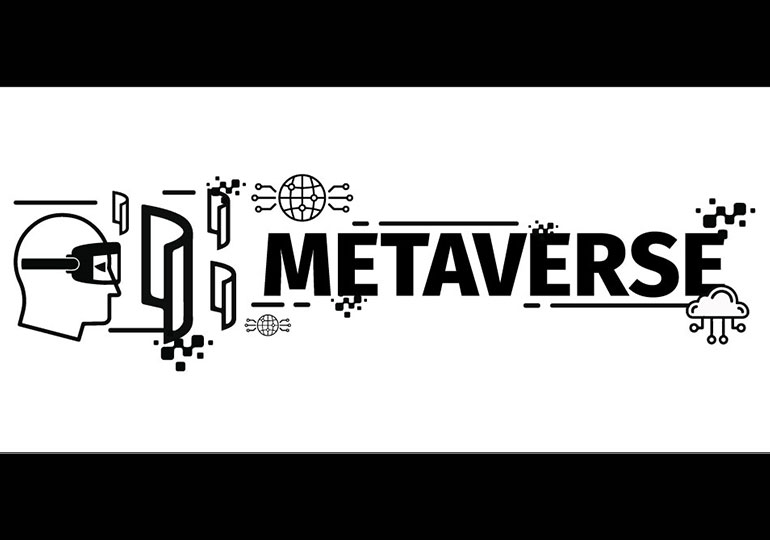Introduction
Mergers and acquisitions (M&A) are the forms of the company restructuration and it measurably reveals on the antimonopoly atmosphere on one or another market. For the antimonopoly purposes M&A is named as the concentration, consolidation or combination of the dealing. As a result, any such dealings create appropriate model of certain markets, which impacts on the existing competition of the market. On the opposite side, divide one corporation into several legal entities or demerger corporations directly causes on the de-monopolization of the market.
There are several types of M&A, which are legally treated by the complex commercial agreements, but the main purpose of this article is to discuss M&A not for the viewpoint of the free expression of the contractual will, but to explain it in the framework of the antimonopoly regulation. The main idea is to identify risky M&A treaties for the antimonopoly purposes and present own point of view how to avoid these risks.
- Regulated and unregulated sectors of the economy
Georgian legislation determines different public agencies controlling pre-contractual circumstances of M&A and allows or forbids such dealings if this process causes the damage for the antimonopoly atmosphere. If two existing companies are going to join under one legal entity or one company is going to acquire another company and this process may harm a competition environment on an appropriate market, companies will be obliged no notify about their intention to Georgian National Competition Agency. Although, if actors of M&A are enterprises from energetic, telecommunication and banking sectors, this notification should be applied in different public agencies, because mentioned sectors are called as the “regulated sectors of the economy”. Generally, all business entities are “regulated” and they are obliged to comply their activity with Georgian legislation, such as tax, customs, labor, licenses and permits, intellectual property and another, but from the view point of the antimonopoly purposes, there is a special term “regulated sector” and it means the fields which are specially supervised by: Georgian National Energy and Water Supply Regulatory Commission, Communications Commission of Georgia and National Bank of Georgia. That’s why an article presents term “unregulated sectors of the economy” and herein they are interpreted only by competition law and not by another field of law.
- Aim of the antimonopoly regulation of merger and acquisition
Despite all business decisions concerning to mergering corporations or acquiring shares are made by the free will, there is an obligation of the parties to inform about their will to the Legal Entity of Public Law – Georgian National Competition Agency. As a result of such deals, the main challenge is creation possible monopoly position. Described intervention of the free business decisions aims to prevent formatting the dominant status in any unregulated sector of the economy.
Frist of all, it is necessary to identify, what should be the real solid/weak or potential solid/weak risk for the antimonopoly purposes of M&A. An answer is presented in the definition of the “dominant position” of the market.
“Dominant position means a position of an economic agent(s) operating on the relevant market, which allows it/them to act independently from competing undertakings, suppliers, clients and final consumers, and to substantially influence on the general conditions of circulation of goods on the market and restrict competition. Unless there is any other evidence, an economic agent(s) shall not be deemed to hold a dominant position if their share of the relevant market does not exceed 40%. Each out of two or more economic agent(s) shall be considered to be in a dominant position if it does not encounter any significant competition within the group under consideration and from other economic agent(s), taking into account the limited access to their raw materials and the sales markets, market entry barriers and other factors, and at the same time:
i.a) the joint market share of not more than 3 economic agents exceeds 50% and at the same time, the market share of each of them is at least 15%;
i.b) the joint market share of not more than 5 economic agents holding the most significant market share exceeds 80% and at the same time, the market share of each of them is at least 15%.”[1]
For the purposes of the antimonopoly law, all mergers and acquisitions, which may cause the monopoly circumstances on one or another market means “concentration”, which means:
“a) merger of two or more independent economic agents resulting in the formation of a single economic agent;
- b) gaining of direct or indirect, full or partial control over one or more economic agents through the purchase of securities or interests, or through an agreement or otherwise, by one or more economic agents, or a person already controls at least one economic agent who is not considered to be an independent economic agent for the purposes of this law; on competition
- c) establishing a joint venture if it for a long time performs all the functions of an independent economic agent.”[2]
The law does not distinguish a “joint venture” and a “merger of two or more independent economic agents.” At the same time, it is important to get answer on the question – what’s meant under ” for a long time performing all the functions of an independent economic agent?” There are no indicated accurate or approximate criteria to measure the time. From my point of view sub-paragraph “c” of the quoted norm needs to be refined and specified in order to avoid all possible cases of subjective assessment.
- Mitigated approach of the law and the risk for the antimonopoly environment
The main public intervention of the pre-contractual dealing of M&A implies as follows: “For the registration concentration, economic agents have an obligation to submit a notification to the Agency’s opinion about the competitive impact of the expected merger/concentration. The Agency’s negative opinion shall serve as the basic for the Legal Entity on the Public Law – National Agency of Public Registry to refuse the registration.[3]
In spite of the mentioned obligation to inform the Competition Agency, there are several exceptions in the law. Particularly: “In case of concentration, a relevant economic agent shall not be obliged to submit notification of concentration to the Agency if: b) control is gained temporarily, provided that the rights acquired by owning a share (including voting rights) will not be exercised, except for the right to receive information, the right to sell shares and receive dividends and the right to take ownership in case of securing a loan; c) concentration is made by the interdependent persons”.[4]
Quoted sub-clause “b” needs more clarification. It should be determined what means under obtaining “temporary” control, because this time may be as one reporting month and also it may last several years. Unfortunately, existing turbulence should not remain no resource to consider an issue subjectively. Subsequently, if an independent economic agent controls company for the several years, it may cause convincing thereat for the lively antimonopoly environment.
This law also describes the definition of the “interdependent persons” or referred as “related parties”. According to the law: “Related parties mean parties whose special relationship between each other may impact on the conditions of the business or economical outcomes of their activity or the activity of the entities which they represent. The following persons shall be regarded as related parties:
k.a) a person who is a supervisory board member or has managerial or representative authority in one economic agent and at the same time is a supervisory board member or has managerial or representative authority in another economic agent, which allows him/her to exercise direct or indirect control over this economic agent;
k.b) a person who is a member of the supervisory board of an economic agent and at the same time holds such amount of voting shares/interest in another economic agent that enables him/her to exercise direct or indirect control over this economic agent;
k.c) a person who holds a significant voting right in one economic agent and at the same time holds a significant voting right in another economic agent, which allows him/her to execute direct or indirect control on such economic agent;
k.d) related parties provided by the Tax Code of Georgia”.[5]
First clause of 19 article of Georgian Tax code similarly defines the definition of the “related party” as it is regulated by the above-mentioned legal norm of the law of Georgia “on competition”.
There is a high risk that concentration between/among related parties cause dominant position and accordingly, concentration generate risky antimonopoly circumstances.
Such conclusion is reinforced by several arguments presented below:
- As it was indicated on the beginning part of this legal norm – related parties mean parties whose special relationship between each other may impact on the “conditions of the business” or “economical outcomes” of their activity or the activity of the entities which they represent. There is no indication that these conditions and outcomes may cause the reality when each representative of the governance body of one or another corporation may control another corporation and it will negatively impact on the competition environment. The law does not specify what means under “conditions and economic consequences” and what means the intervention or impact on them and/or what is the proportionate rate on this intervention of the competitive environment. Therefore, it is important to specify the quality and scale of this intervention. The test of the clarification of this issue should be the measurement of quality of the dominant condition and its legal definition. In particular, if such concentration and control of the operating conditions and economic consequences of it directly creates a dominant position, it means that there is a direct threat to the competitive environment and in such case the agency must be informed and therefore there should not be any exception of it.
- There is no indicated in the sub-clause “K” are the members of the supervisory board independent members. Majority members of the supervisory board may even be completed by independent members and therefore this factor may change the meaning of the original idea of this exception. Accordingly, here the law should define this moment and separate the status of the supervisory board member.
- In all types of the interdependent persons there are indicated, that each branch of the corporate governance is authorized to directly or indirectly control another economic agent. If there is reference on the control, moreover on the direct control, as a result there may be occur a high risk for the competition environment.
Considering all of these aspects I conclude, that if the result of M&A in a high probability may create the high risk for creating the dominant position on the market, mentioned exceptions regulating not to inform the Competition Agency should be taken from the law.
Levan Kokaia
Master in Law. Attorney at Law. Legal consultant on corporate governance issues. Currently serves as a corporate lawyer at one of the energy companies. Member of Georgian Bar Association. Author of more than 40 publications. Guest lecturer and trainer at GIPA.
Sources:
[1] Law of Georgia “on competition”. Article 3. Sub-clause “I”.
[2] Ibid. Article 11. Clause 1.
[3] Ibid. Article 11, 6 th clause.
[4] Ibid. Article 112. Clause 1. Sub-clause “b” and “c”.
[5] Ibid. Article 3. Sub-clause “K”.

ლევან კოკაია
ლევან კოკაია - აქვს სამართლის მაგისტრისა და სახელმწიფო მართვის მაგისტრის აკადემიური ხარისხი, იგი არის ჩეხური ენერგეტიკული ჰოლდინგის სს „ჯეენ სიჯეი ა.ს“-ის ჯგუფში შემავალი ჰიდროელექტროენერგეტიკული კომპანიის კორპორაციული იურისტი, ამავდროულად ორმოცდაათი გამოქვეყნებული პუბლიკაციის ავტორი და საქართველოს საზოგადოებრივ საქმეთა ინსტიტუტის (GIPA)-ს მოწვეული ლექტორი და ტრენერი.















